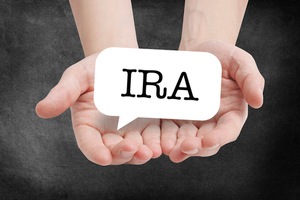Why Advance Directives Matter
In mid-October news broke that basketball player Lamar Odom was found unconscious in a brothel and hospitalized in Las Vegas. In the early days of his hospitalization, it was determined that Odom’s divorce from reality TV star Khloe Kardashian was not yet final, leaving her as the statutorily determined decision maker regarding her husband’s health care, even though the couple had been estranged for several years after their December 2013 divorce filing.
Watching this somewhat tangled situation play out in the media gives us the opportunity to point out an important estate planning lesson: advance directives matter. Without an advance directive, the patient’s spouse has priority to make medical decisions, followed by adult children, parents, adult sibling(s), and the nearest other adult relative. If you prefer to choose who will be making decisions on your behalf, your estate planning should include advance directives that specify your desires for medical treatment under certain specified conditions. In Nevada, we generally use two documents for this purpose: a Durable Power of Attorney for Healthcare Decisions and a Living Will.
Durable Power of Attorney for Healthcare Decisions
This document allows you to appoint an agent to make healthcare decisions for you if you are unable to do so for any reason. It becomes effective once your incapacity is certified by a physician and allows you to make detailed choices about the care you should receive and what decisions your agent is allowed to make on your behalf. As you choose, your agent may consent, refuse to consent, or withdraw consent for medical treatment, and can make decisions about life-sustaining treatments. Unless you state otherwise, your agent will have the same authority to make medical decisions as you would.
Living Will
The Living Will, which is also known in Nevada as a “Declaration,” requests a physician to withhold or withdraw life-sustaining treatment. However, a Living Will only goes into effect if (i) you have an incurable or irreversible condition that without life-sustaining treatment would result in death; and (ii) you are unable to communicate.
The Living Will provides what steps should be taken concerning life-sustaining treatment while a Durable Power of Attorney for Health Care can be much broader in scope as it can cover any medical condition, not just decisions concerning life-sustaining treatment.
Nevada’s Secretary of State’s office has an electronic Living Will Lockbox where you can lodge a copy of your advance directive. This creates a simple and secure means to ensure that your medical wishes are followed. You choose who has access to your Lockbox documents and your agent or physician can retrieve a copy of your Living Will during an emergency or illness.
Please call our office about creating or updating your advance directives to give you the peace of mind you deserve.





